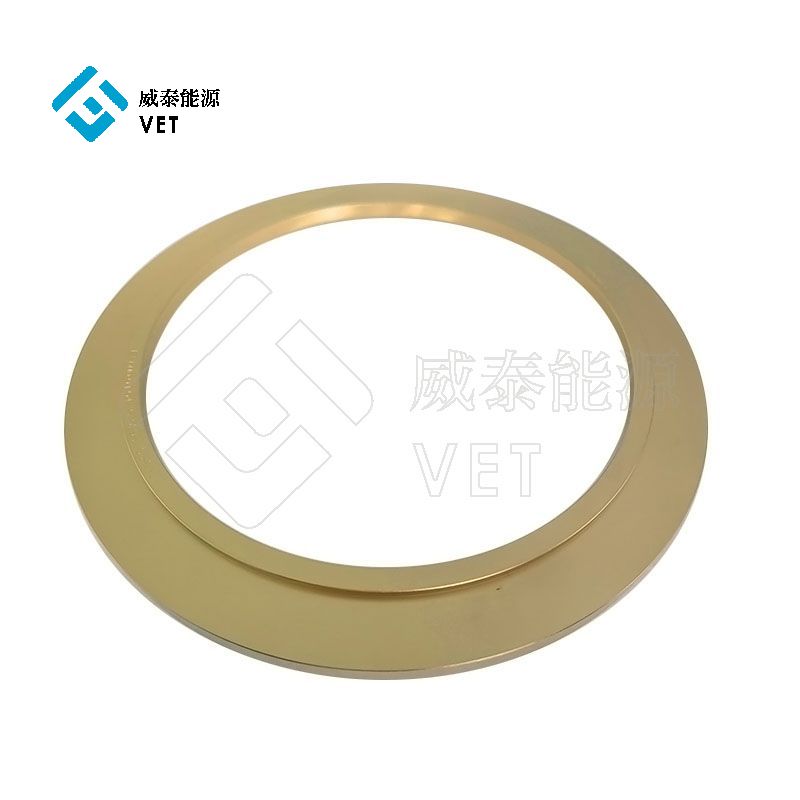Tantalum carbide coating is a commonly used surface treatment technology that can significantly improve the corrosion resistance of materials. Tantalum carbide coating can be attached to the surface of the substrate through different preparation methods, such as chemical vapor deposition, physical vapor deposition, sputtering, etc., to form a uniform and dense protective layer, which effectively blocks the contact between the material and the environmental medium, thereby improving the corrosion resistance.
The following are several main mechanisms for tantalum carbide coating to enhance the corrosion resistance of materials:
1. Isolation barrier effect:
Tantalum carbide coating has good density and high hardness, which can effectively isolate the substrate from the contact with the external medium and prevent corrosion by corrosive substances such as acids, alkalis, and salts. The dense barrier layer formed by tantalum carbide coating can reduce the permeability of the material surface and prevent the penetration of corrosive media, thereby improving the corrosion resistance of the material.
2. Chemical stability:
Tantalum carbide coating has high chemical stability and can maintain its structure and performance without significant changes under extreme environmental conditions. Tantalum carbide is a material with high chemical inertness that can well resist the erosion of strong corrosive media such as acids, alkalis, and oxidants. In addition, due to the high hardness and low friction coefficient of tantalum carbide coating, it can also reduce the friction and wear between the material and the environmental medium and extend the service life of the material.
3. Self-repairing ability:
Tantalum in tantalum carbide coating has a certain self-repairing ability. When the coating is scratched, worn or partially damaged, tantalum can react with oxygen, chlorine and other elements in the corrosive medium to form tantalum compounds such as tantalum oxide and tantalum chloride, fill the defects on the surface of the coating, and re-form a protective film. This self-repairing ability can effectively slow down the corrosion process and delay the destruction of the coating.
4. Conductivity:
Tantalum carbide coating has good conductivity and can form an electrochemical protective layer to prevent the flow of corrosion current. When the surface of the coating is corroded by the corrosive medium, tantalum will adsorb ions in the surrounding environment to form a stable potential difference, prevent the passage of corrosion current, and thus prevent the corrosion reaction.
5. Addition of additives:
In order to further improve the corrosion resistance of tantalum carbide coating, additives can be added during the coating preparation process. For example, adding additives such as potassium and oxides can promote the densification and grain refinement of the coating, improve the stability of the intracrystalline interface in the coating and the ability to resist discreteness, thereby improving the corrosion resistance of the coating.
In short, tantalum carbide coatings can significantly enhance the corrosion resistance of materials through mechanisms such as isolation barrier effect, chemical stability, self-healing ability, conductivity and additive addition. This has important application value in many fields, such as chemical industry, energy, aerospace, etc.
Post time: Jun-25-2024

